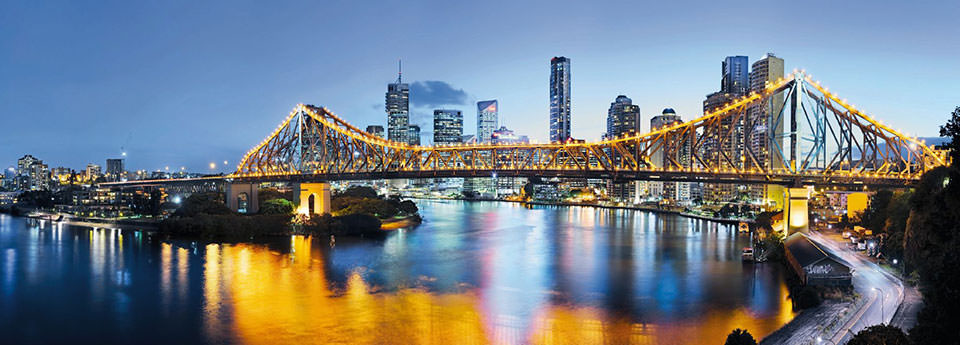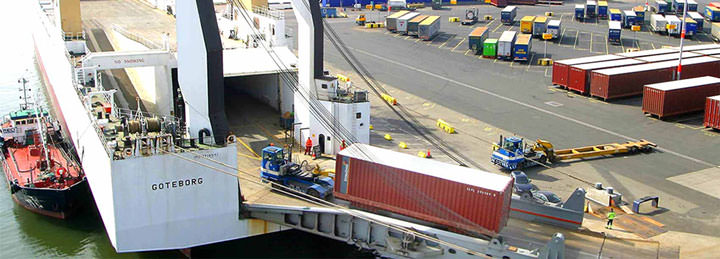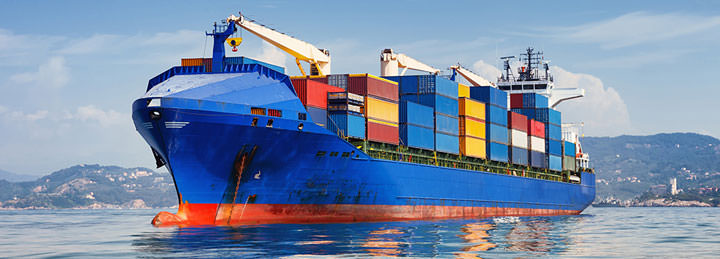
Car Shipping to Brisbane
- Fast Information
- Cost starts from: £1295
- Roll on/Roll off: Yes ✓
- Container Shipping: Yes ✓
- Frequency of sailing: weekly
Shipping Your Car from the UK to Australia: Your Comprehensive Guide to Brisbane
Australia, a vast and desirable continent, beckons with its unique lifestyle, stunning natural beauty, and economic opportunities. For those planning a move or an extended stay, shipping your vehicle from the UK to Australia, specifically to the vibrant city of Brisbane, is a significant undertaking. ShipCars.co.uk provides expert international car shipping services, offering a range of options including Roll-on/Roll-off (RoRo), dedicated container, and shared container services.
This comprehensive guide, written in UK English, aims to equip you with all the essential information for shipping your car to Brisbane, ensuring a smooth and compliant process from start to finish.
Your Vehicle Shipping Options to Australia
We offer flexible and secure shipping solutions tailored to your needs when sending your car from the UK to Australia.
-
Roll-on/Roll-off (RoRo) Shipping

RoRo is an economical and efficient method for shipping drivable vehicles. Your car is driven directly onto a specialised vessel and secured in a dedicated vehicle deck for its journey.
-
Primary Port: While we can arrange shipping to various Australian ports, Brisbane is a key destination we serve.
-
Transit Time: The sea journey from the UK to Brisbane typically ranges from 40 to 50 days.
-
Frequency: RoRo services to Australia usually operate on a fortnightly basis. Schedules are confirmed at the time of booking.
-
Link to RoRo Page: For more details on our RoRo services, benefits, and preparation, please visit our RoRo Shipping Page.
RoRo Specifics:
-
Vehicle Condition: The vehicle must be in a fully operational and drivable condition.
-
Fuel Level: The fuel tank should be no more than a quarter full.
-
Personal Belongings: Absolutely NO personal belongings, accessories, or spare parts are permitted inside the vehicle for RoRo shipments. The vehicle must be empty.
-
Hybrid Vehicles: Generally allowed, with pre-approval.
-
Electric Vehicles (EVs): NOT ALLOWED on RoRo services due to battery safety regulations.
-
Container Shipping (Dedicated & Shared)
Container shipping offers enhanced security and flexibility, suitable for a wider range of vehicles and situations.
-
Dedicated Container: You have exclusive use of a 20ft or 40ft container. This provides maximum security and the ability to pack personal effects.
-
Ports of Arrival: Primarily Brisbane, but other major Australian ports can be serviced.
-
Transit Time: Typically 45 to 55 days.
-
Frequency: Departures are generally more frequent, often weekly or bi-weekly.
-
-
Shared Container (Groupage): Your vehicle shares space in a container with other vehicles, offering a cost-effective solution.
-
Ports of Arrival: Primarily Brisbane.
-
Transit Time: Typically 50 to 60 days due to consolidation.
-
Frequency: Departures are usually monthly or bi-monthly.
-
Container Specifics:
-
Vehicle Condition: Vehicles do not need to be working for container or shared container services. Our team can safely winch non-running vehicles into the container.
-
Personal Belongings: YES, personal belongings and goods can be packed inside the vehicle within the container, provided they are declared and not prohibited.
-
Hybrid Vehicles: Generally allowed.
-
Electric Vehicles (EVs): Allowed. A hazard surcharge of £295 typically applies due to battery regulations.
-
Link to Container Page: Learn more about our secure container shipping options on our Container Shipping Page.
Destination Rules, Inspections, and Permits for Australia
Australia has rigorous import regulations, particularly concerning biosecurity and vehicle standards, managed by several key government bodies.
Rules for Australia:
-
Governing Authorities:
-
Department of Home Affairs (Immigration and Border Protection): Oversees customs, duties, and import regulations.
-
Website: www.homeaffairs.gov.au (Search for “importing a vehicle”).
-
-
Department of Agriculture, Fisheries and Forestry (Biosecurity): Manages strict biosecurity measures to prevent the introduction of pests and diseases.
-
Website: www.agriculture.gov.au (Search for “vehicle import conditions” or “biosecurity for vehicles”).
-
-
Department of Infrastructure, Transport, Regional Development, Communications and the Arts: Sets standards for vehicle safety and emissions.
-
Website: www.infrastructure.gov.au (Search for “Road Vehicle Standards”).
-
-
Inspection and Permit Requirements:
-
Import Approval / Concessional Entry:
-
For most personal vehicle imports, you will need an Import Approval from the Department of Infrastructure, Transport, Regional Development, Communications and the Arts. This ensures the vehicle meets Australia’s Road Vehicle Standards (RVS) legislation.
-
Concessional Entry: If you are eligible (e.g., migrating to Australia, changing residency, or specific family transfers), you may qualify for reduced duties and taxes under concessional entry. This requires specific conditions to be met and documentation provided to the Department of Home Affairs.
-
-
Biosecurity Clearance:
-
Mandatory Cleaning: All vehicles MUST be thoroughly cleaned (inside and out) to remove any soil, plant material, seeds, or other organic contaminants before shipping. This is crucial to pass Australian biosecurity inspections.
-
Quarantine Declaration: You must declare the vehicle’s previous use and any potential contamination risks.
-
Inspection: Upon arrival, vehicles are inspected by the Department of Agriculture, Fisheries and Forestry. If contamination is found, cleaning charges or even destruction of the vehicle can occur.
-
-
Fumigation: For vehicles shipped via RoRo or in standard containers, fumigation may be required if specified by biosecurity officers, particularly if materials like untreated timber are used for securing.
-
Motorhomes on Flat Rack: For motorhomes and larger vehicles, we offer flat rack shipping. This method can sometimes help avoid mandatory fumigation requirements for the vehicle itself, as it is loaded onto an open-air platform, though any packing materials used would still need to be compliant.
Paperwork Required: UK and Australia
Accurate and complete documentation is vital for a smooth import process into Australia.
In the UK (Origin):
-
Proof of Ownership: Original V5C (logbook) or equivalent proof of registration and ownership.
-
Photo Identification: A clear copy of your passport’s photo page.
-
Completed Shipping Booking Form: Provided by ShipCars.co.uk.
-
Import Approval (RVS Compliance Certificate): Issued by the Department of Infrastructure, Transport, Regional Development, Communications and the Arts.
-
Vehicle Condition Report:
-
Free of charge if we collect your vehicle using our transporter or trade plate service.
-
-
UK Export Declaration: We will manage the necessary export procedures on your behalf.
In Australia (Destination):
-
Import Approval (RVS Compliance Certificate): Issued by the Department of Infrastructure, Transport, Regional Development, Communications and the Arts.
-
Proof of Ownership (UK V5C).
-
Bill of Lading.
-
Concessional Entry Application (if applicable): With supporting documentation for residency/transfer.
-
Customs Declaration: Lodged with the Department of Home Affairs.
-
Proof of Payment of Duties, Taxes, and Fees.
-
Biosecurity Declaration: Confirming vehicle cleaning and origin.
-
Vehicle Registration: Once cleared by all authorities, the vehicle must be registered with the relevant state authority (e.g., Queensland Department of Transport and Main Roads).
Duty and Tax in Australia
Australia levies Goods and Services Tax (GST) and Luxury Car Tax (LCT) on imported vehicles, though concessional entry can significantly reduce these.
-
Goods and Services Tax (GST): Currently 10% of the “customs value” of the vehicle, which includes the purchase price, shipping costs, and insurance.
-
Luxury Car Tax (LCT): If the vehicle’s customs value exceeds a certain threshold (which changes annually), LCT applies. The rate is 33% on the amount above the threshold. For 2023-2024, the LCT threshold for fuel-efficient vehicles is AUD $89,332, and for other vehicles, it’s AUD $76,975.
-
Import Duty: Generally, no import duty applies to new or used passenger vehicles imported by individuals for personal use if they meet RVS requirements. However, specific categories or commercial imports may differ.
-
Concessional Entry: If eligible, GST and LCT may be waived or reduced, making import more affordable. Eligibility criteria (e.g., migrating residents, family transfers) are strict and require application to the Department of Home Affairs.
Consolidated Pricing Information
Below is a summary of indicative pricing for our shipping services to Brisbane. These prices cover sea freight and associated UK port charges. Please note that Australian quarantine fees, customs clearance, GST, and LCT are additional and depend on the vehicle and your eligibility for concessional entry.
RoRo Shipping (to Brisbane)
-
Small car (e.g., VW Golf): Approximately £1387
-
Large car (e.g., Range Rover): Approximately £2073
Container Shipping (to Brisbane)
-
Shared Container:
-
Small car: Approximately £1450
-
Big car (e.g., Range Rover): Approximately £1720
-
-
Dedicated Container: (Typically starts from approx. £1800-£2000 for a 20ft, depending on vehicle size and current rates)
Please Note: These prices are for sea freight and UK port charges only. They do not include UK collection, comprehensive marine insurance, Australian quarantine fees, customs clearance, GST, LCT, or any RVS compliance/modification costs.
UK Collection Services
We offer convenient collection services across the UK to ensure your vehicle reaches the port safely and securely:
-
Transporter Collection: For vehicles that are not roadworthy, or for added security and convenience, we can arrange for a professional vehicle transporter to collect your car from your UK address and deliver it directly to the departure port or our loading depot.
-
Trade Plate Driver: For vehicles that are fully operational and have a valid UK MOT certificate, we can dispatch a professional driver using trade plates. They will collect your vehicle and drive it to the port or our depot. Crucially, for trade plate collection, the vehicle MUST have a valid MOT and be fully operational.
-
Self-Delivery: You are welcome to deliver your vehicle directly to our designated loading depot. A £35 fee will apply for us to conduct the necessary condition report in this instance.
Hybrid and Electric Vehicle Compatibility
We accommodate the shipping of modern hybrid and electric vehicles with specific considerations:
-
Hybrid Vehicles:
-
RoRo: Generally allowed.
-
Container (Dedicated/Shared): Generally allowed.
-
-
Electric Vehicles (EVs):
-
RoRo: NOT ALLOWED on RoRo services due to battery safety regulations.
-
Container (Dedicated/Shared): Allowed, but a hazard surcharge of £295 typically applies due to battery regulations. The vehicle’s battery charge must also be below a specified level (usually 40-50%) and accurately declared.
-
Loading Goods with Your Vehicle
The ability to pack personal effects depends on the shipping method:
-
RoRo Service: Absolutely NO personal belongings, accessories, or any other items are permitted inside the vehicle. The vehicle must be completely empty to comply with shipping line regulations and prevent contamination issues for Australian biosecurity.
-
Container Service (Dedicated/Shared): YES, personal belongings and goods can be packed inside the vehicle within the container. However, all items must be accurately declared, and certain items are prohibited (see “What’s Not Allowed” section).
Motorhome Shipping
For larger vehicles like motorhomes, we offer specialised solutions:
-
Flat Rack Shipping: We can arrange for motorhomes and larger recreational vehicles to be shipped on an open flat rack. This method is often beneficial as it can help avoid mandatory fumigation requirements that might otherwise apply to enclosed transport methods, provided no untreated timber or organic materials are used for securing.
Insurance and Risk Coverage
Protecting your valuable asset during its international voyage is crucial. We offer comprehensive marine insurance options:
-
Total Loss Cover (1% of Value):
-
Cost: 1% of the declared vehicle value + shipping costs.
-
Coverage: This covers the total loss of the vehicle due to major incidents such as fire damage or significant water damage sustained during transit.
-
-
Comprehensive Cover (1.5% of Value):
-
Cost: 1.5% of the declared vehicle value + shipping costs.
-
Coverage: This premium cover extends to cosmetic damage (such as scratches or minor dents) in addition to total loss from fire or water damage.
-
Vehicle Age Limit: To qualify for this comprehensive cover, the vehicle cannot be older than 10 years.
-
Condition Report: A detailed condition report is mandatory for comprehensive cover.
-
This report is provided free of charge if we collect your vehicle using our transporter or trade plate service.
-
A fee of £35 applies if you deliver the vehicle to our depot, for us to conduct the condition report.
-
-
Important: Ensure you declare an accurate market value for your vehicle, including shipping and insurance costs, to guarantee adequate coverage. If you decline our insurance options, your vehicle will be shipped at your own risk.
What’s Not Allowed to Ship (Prohibited Items) and Restrictions
Australia has extremely strict biosecurity and customs regulations. Failure to comply can result in severe penalties, including fines, vehicle destruction, or refusal of entry.
Prohibited Items (Cannot be shipped inside or with the vehicle):
-
Flammable or Explosive Materials: Including extra fuel canisters, fireworks, ammunition, and certain aerosols.
-
Illegal Substances/Drugs: Any narcotics or controlled substances.
-
Firearms and Weapons: Unless specific permits and strict declarations are made and approved by Australian authorities.
-
Hazardous Chemicals: Corrosives, toxic materials, batteries not properly secured or declared.
-
Cash and High-Value Items: Large sums of money, precious metals, jewellery, or portable high-value electronics should not be packed inside the vehicle. Transport these items separately and with their own insurance.
-
Food Items & Perishables: Generally prohibited due to strict biosecurity laws.
-
Used Tyres: Generally not permitted for import.
Restricted Items (Require Declaration; May Have Limits or Specific Handling):
-
Personal Effects (Container Service Only): All items must be accurately declared. Some items may be subject to import restrictions, duties, or require specific treatment. Prohibited food items, plant matter, or soil-contaminated items are strictly forbidden.
-
Vehicle Fuel: Fuel tanks must be less than a quarter full for all services.
-
Vehicle Fluids: Standard operating fluids are acceptable, but excessive amounts or hazardous fluids require special attention.
-
Batteries (EVs): Specific regulations regarding battery charge levels and condition apply. A hazard surcharge is mandatory for EVs in containers.
-
Animal Products: Strict controls apply; generally not permitted unless treated and declared.
-
Plant Matter: Strict controls apply; generally not permitted unless treated and declared.
Crucial Advice: Given Australia’s stringent biosecurity and import laws, thorough cleaning of your vehicle before shipping is non-negotiable. It is also highly recommended to consult with an Australian customs broker experienced in vehicle imports to understand all requirements, including RVS compliance and potential eligibility for concessional entry, before booking your shipment.
Cost Breakdown: What Contributes to the Price
The total cost of shipping your vehicle from the UK to Brisbane involves several components:
-
Sea Freight Charges: The base cost for RoRo, dedicated container, or shared container services, influenced by vehicle size and prevailing market rates.
-
UK Port Fees: Includes terminal handling, documentation, security, and agency fees at the UK departure port.
-
UK Collection & Loading Costs:
-
Fees for transporter or trade plate driver collection (if chosen).
-
Depot handling and administration fees.
-
Container loading and securing costs (for container services).
-
Condition report fee (if self-delivered to our depot).
-
-
Marine Insurance Premium: Calculated based on your chosen cover level (1% or 1.5% of the declared value).
-
UK Export Documentation & Customs: Fees for processing export declarations.
-
Electric Vehicle Hazard Surcharge: The £295 surcharge for shipping EVs in containers.
-
Australian Quarantine Fees: Fees for biosecurity inspection and any necessary cleaning or fumigation upon arrival.
-
Customs Clearance Fees: Charges by an Australian customs broker to process import declarations.
-
Australian Duties and Taxes: GST (10%), and potentially Luxury Car Tax (LCT), unless eligible for concessional entry.
-
RVS Compliance/Modification Costs: If your vehicle requires modifications or specific approvals to meet Australian Road Vehicle Standards.
-
Registration Fees: Costs to register the vehicle with the relevant Australian state authority.
Frequently Asked Questions
Can I ship my personal car to Australia?
Yes, provided it meets Australia’s Road Vehicle Standards (RVS) and biosecurity requirements. Eligibility for concessional entry (reduced GST/LCT) depends on specific criteria like migrating residency.
What are the main ports for car shipping to Australia?
We primarily service Brisbane, but other major ports like Sydney, Melbourne, Fremantle, and Adelaide can also be destinations.
How long does it take to ship a car from the UK to Brisbane?
Transit times vary: RoRo is typically 40-50 days, dedicated containers 45-55 days, and shared containers 50-60 days.
Can I put personal items in my car?
Yes, but only if you use a container service (dedicated or shared). Personal items are strictly forbidden in vehicles shipped via RoRo. All items in containers must be declared.
What about electric car shipping?
Electric vehicles are not allowed on RoRo services. They can be shipped in containers, but a hazard surcharge of £295 typically applies.
Do I need insurance?
While not legally mandatory for the sea voyage, comprehensive marine insurance is highly recommended. We offer total loss cover at 1% and comprehensive cover (including cosmetic damage for vehicles under 10 years) at 1.5%.
ShipCars.co.uk offers a reliable and comprehensive service for shipping your car from the UK to Brisbane and other Australian ports, utilising RoRo and container options. Given Australia’s stringent biosecurity laws and vehicle import regulations, thorough vehicle cleaning and adherence to all documentation requirements are paramount. We strongly advise consulting with an Australian customs broker experienced in vehicle imports to ensure a smooth and compliant importation process. For detailed quotes and further assistance, please contact our experienced team.








